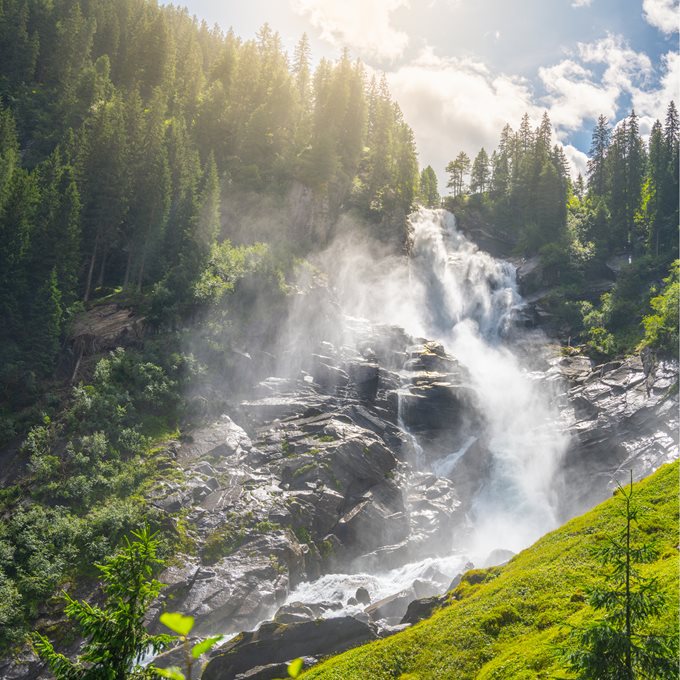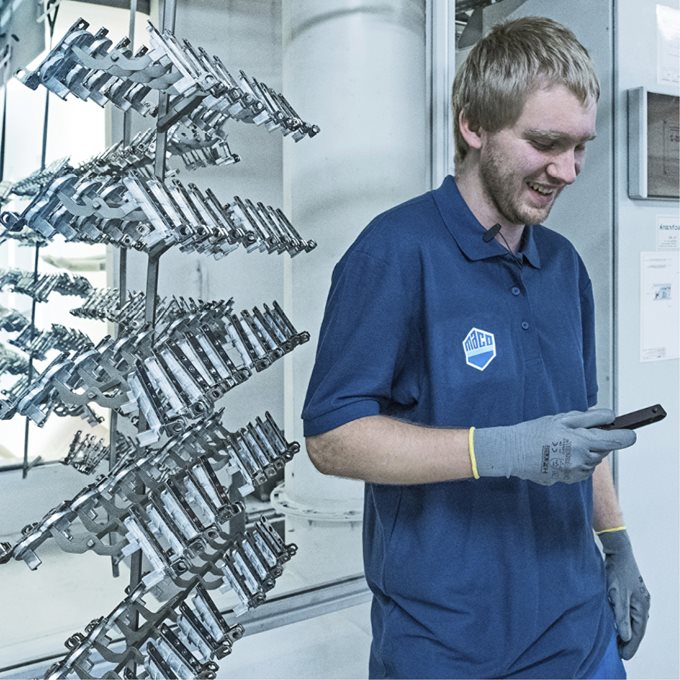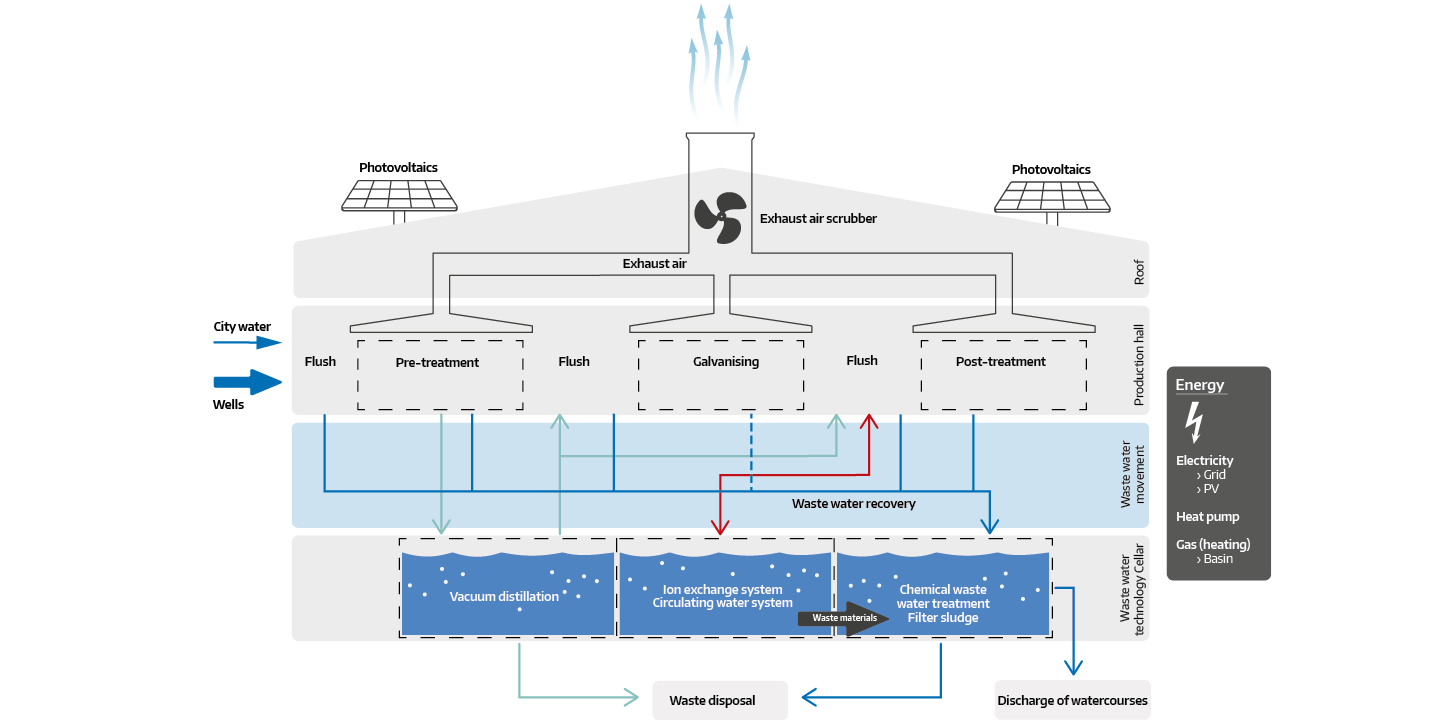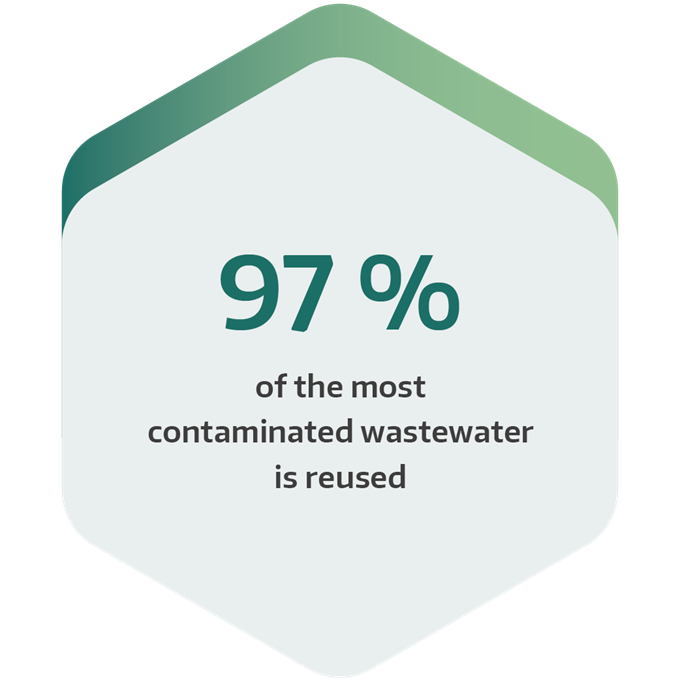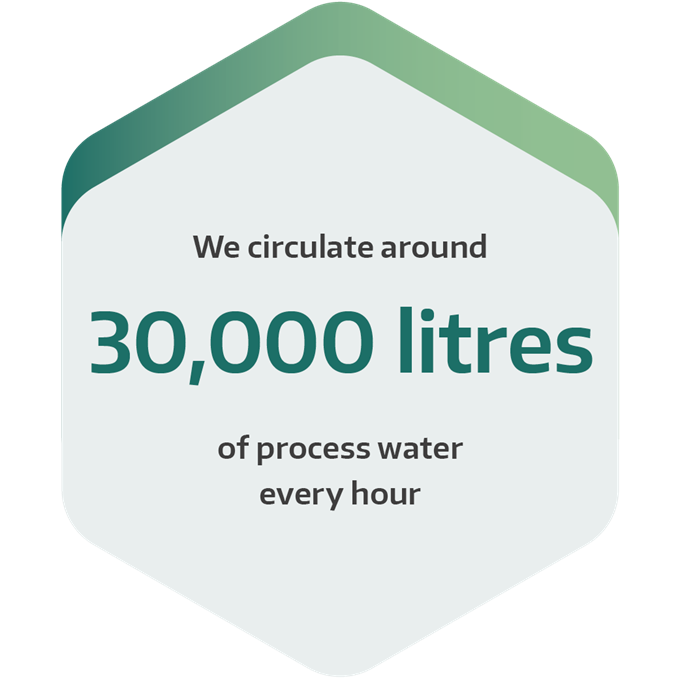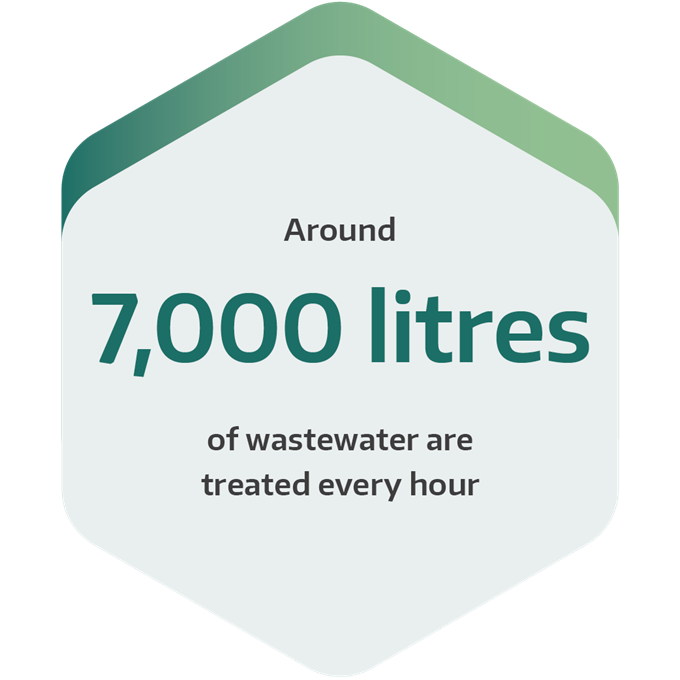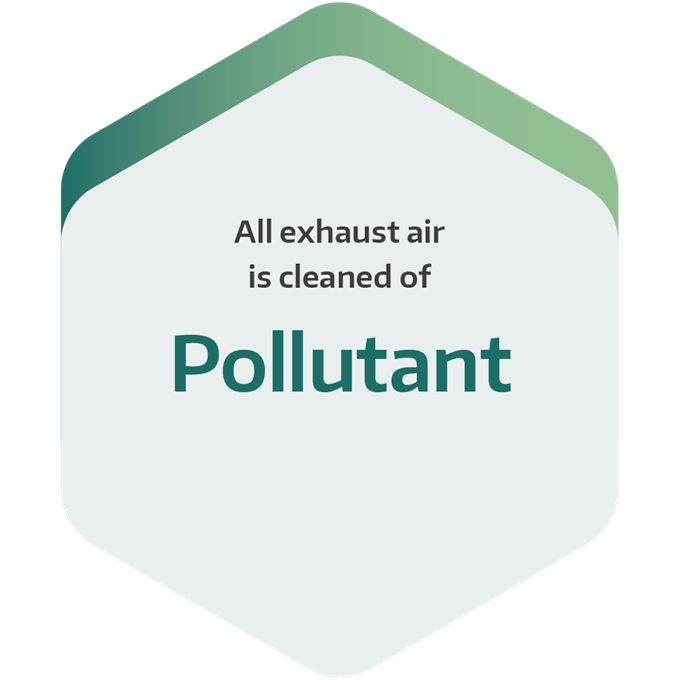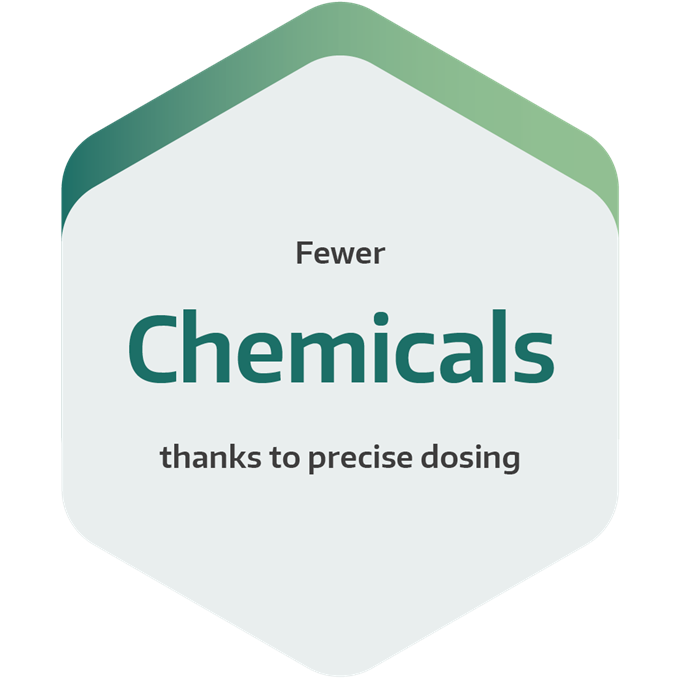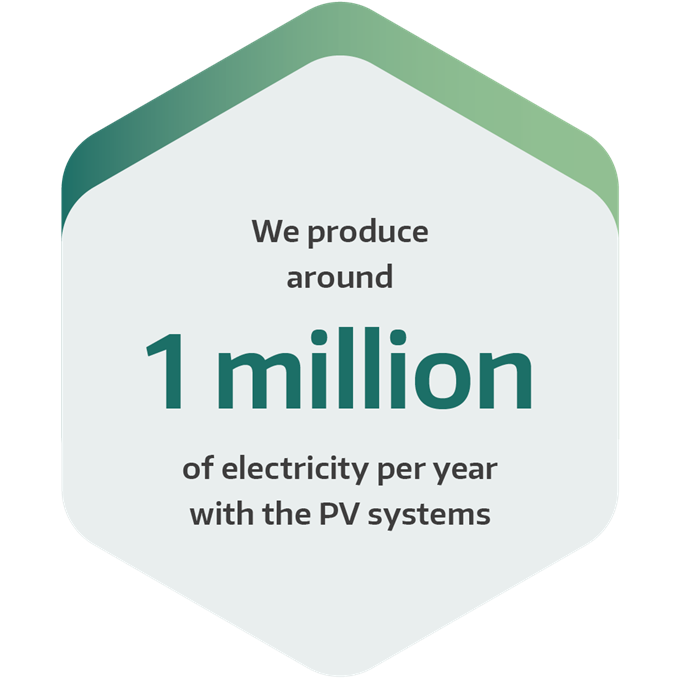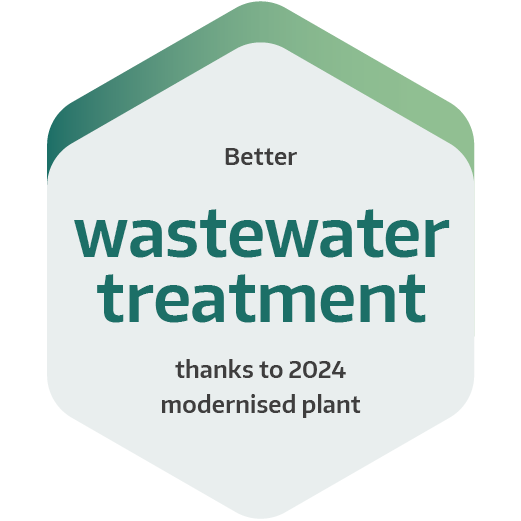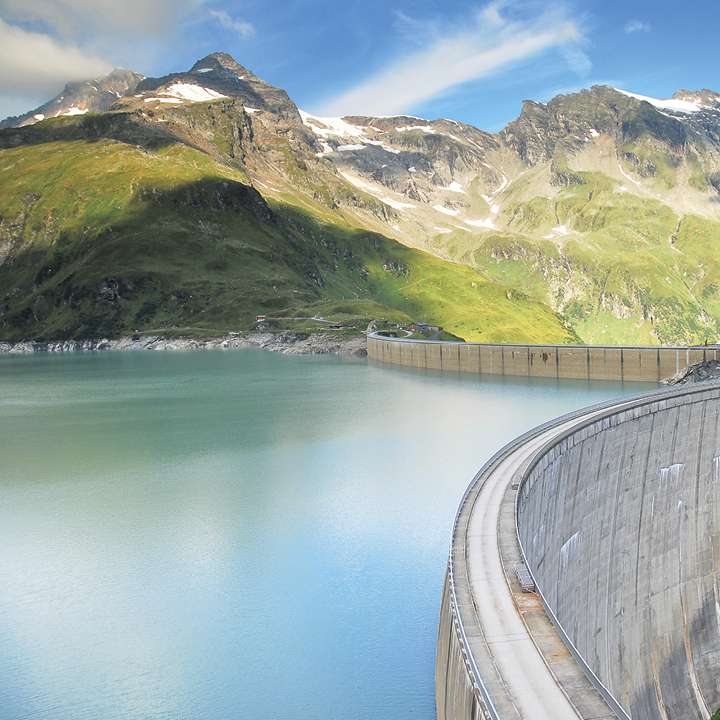New paint stripping module
A new paint stripping module has been in use in Salzburg since the beginning of 2023: this fully automated, closed system requires fewer chemicals, lower temperatures and produces fewer air emissions.
A new paint stripping module has been in use in Salzburg since the beginning of 2023: this fully automated, closed system requires fewer chemicals, lower temperatures and produces fewer air emissions.
Zinc different
Chemicals or zinc? We do not use any of these in the surface treatment of around 140 different items. Instead, they are sanded with a waste product from a naturally renewable grain. This ensures beautiful aesthetics with consistent function and quality - and 214 million ecologically produced parts every year!
Strictly controlled
Our wastewater treatment is closely monitored. Not only do we analyse the wastewater at our sites in our in-house laboratory on a daily basis and keep a company wastewater diary, we also have external inspections carried out once a quarter by our waste disposal companies and annual wastewater inspections by the authorities.
